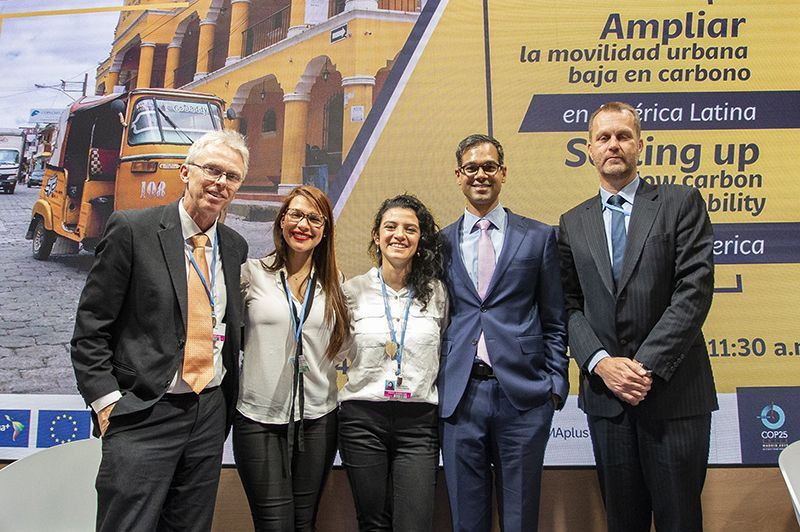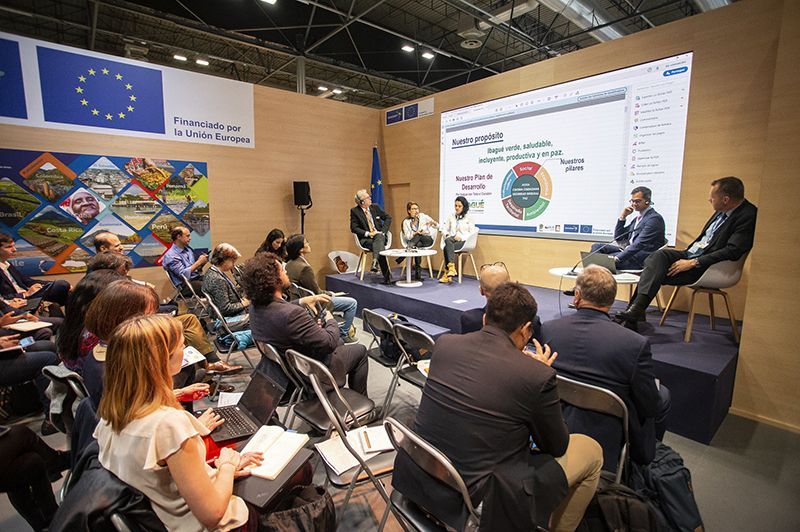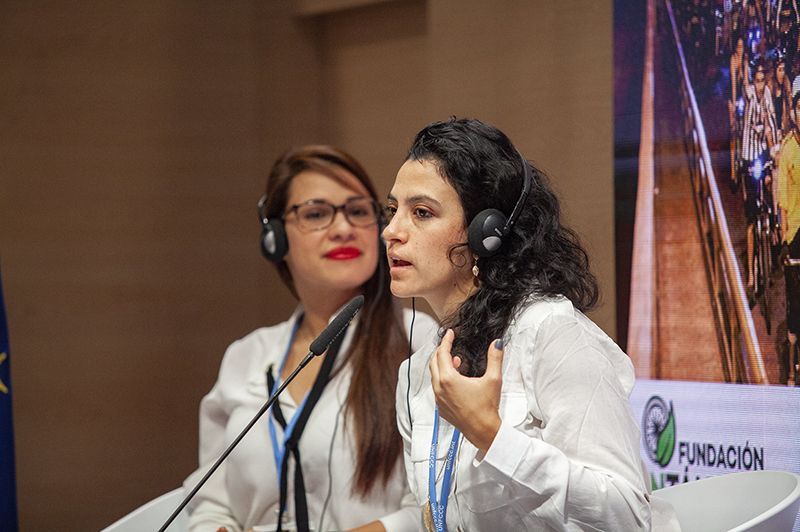At COP 25, the project for an electric pedalling-assisted bicycle system was presented in Ibagué.
Madrid, January 06. - Emissions in Latin America from the transport sector grew by 50 percent between 2000 and 2016, making projects that generate sustainable urban mobility vital as part of climate change mitigation strategies.
This was the panorama presented by Mark Major, advisor to SLoCaT, the Alliance for Sustainable and Low-Carbon Transport, during the event “Expanding Low-Carbon Urban Mobility in Latin America”, held Dec. 4, 2019, in the framework of the 25th Conference of the Parties (COP25).
The objective was to highlight how the region's cities are generating actions in the area of sustainable mobility. To this end, the case of the city of Ibagué was presented and the importance of public participation in generating these actions, along with support tools, such as the global initiative MobiliseYourCity.
In the Colombian city, the pilot project “Shared Use Assisted Pedalling Bicycle System” is being implemented as part of the Urban Mobility component of the EUROCLIMA+ programme, financed by the European Union and implemented by GIZ.
Kelly Camacho, director of Development and Planning of Ibagué and coordinator of this project, presented the panorama of the municipality, which has 570,000 inhabitants that produce 1.5 tons of carbon dioxide per year.
With 32 percent, the transportation sector is the second leading source of contaminating emissions, which is why the development plan includes a significant territorial component, including urban mobility policies, said Camacho. To this end, the city is developing a Mobility Master Plan.
With the pilot project, an electric bicycle system will be launched to encourage sustainable transport. There was a 12-month pre-contractual phase and a 6-month contractual phase in which a consultancy study was carried out for the implementation. A trial period is planned from April to July, and the project will be operational in August.
“In addition to forming a decision-making body called the Public Bicycle Committee, an interdisciplinary body where academia, citizen organisations and the mayor's office participate in decision-making,” Kelly said.
The project aims to empower citizens and consolidate the system despite the administrative changes, which in Ibagué take place every four years. Among the lessons learned, the coordinator highlighted two points: the creation of the Committee and the importance of documenting information and recording the process.
With regard to citizen participation, Lorena Sanabria from the Estátem Foundation, a citizen organisation that promotes the use of bicycles in Ibagué, was also present. Sasank Vemuri presented MobiliseYourCity, a global alliance - in which Ibagué paticipates - created at the COP21 that provides support to the development of sustainable urban mobility plans:
“Mobility implies the movement of people to where they want to go. The changes are enormous, so the solutions we need must also be large and transformative. Deep and comprehensive planning tells us the direction we need to take.”
She also pointed out that, in the case of Latin America, most of the cities that have joined MobiliseYourCity have been those that are part of EUROCLIMA+. The introduction and conclusion of the event was given by Horst Pilger, head of regional programmes for Latin America of the European Commission.
About EUROCLIMA+
EUROCLIMA+ is a programme financed by the European Union to promote environmentally sustainable and climate-resilient development in 18 Latin American countries, particularly for the benefit of the most vulnerable populations. The Programme is implemented under the synergistic work of seven agencies: the Spanish Agency for International Development Cooperation (AECID), French Development Agency (AFD), Economic Commission for Latin America and the Caribbean (ECLAC), Expertise France (EF), International and Ibero-American Foundation for Administration and Public Policies (FIIAPP), the German society for international cooperation (GIZ), and UN Environment.
For more information about the EUROCLIMA+ Urban Mobility component, contact Ana Alcántara This email address is being protected from spambots. You need JavaScript enabled to view it.


